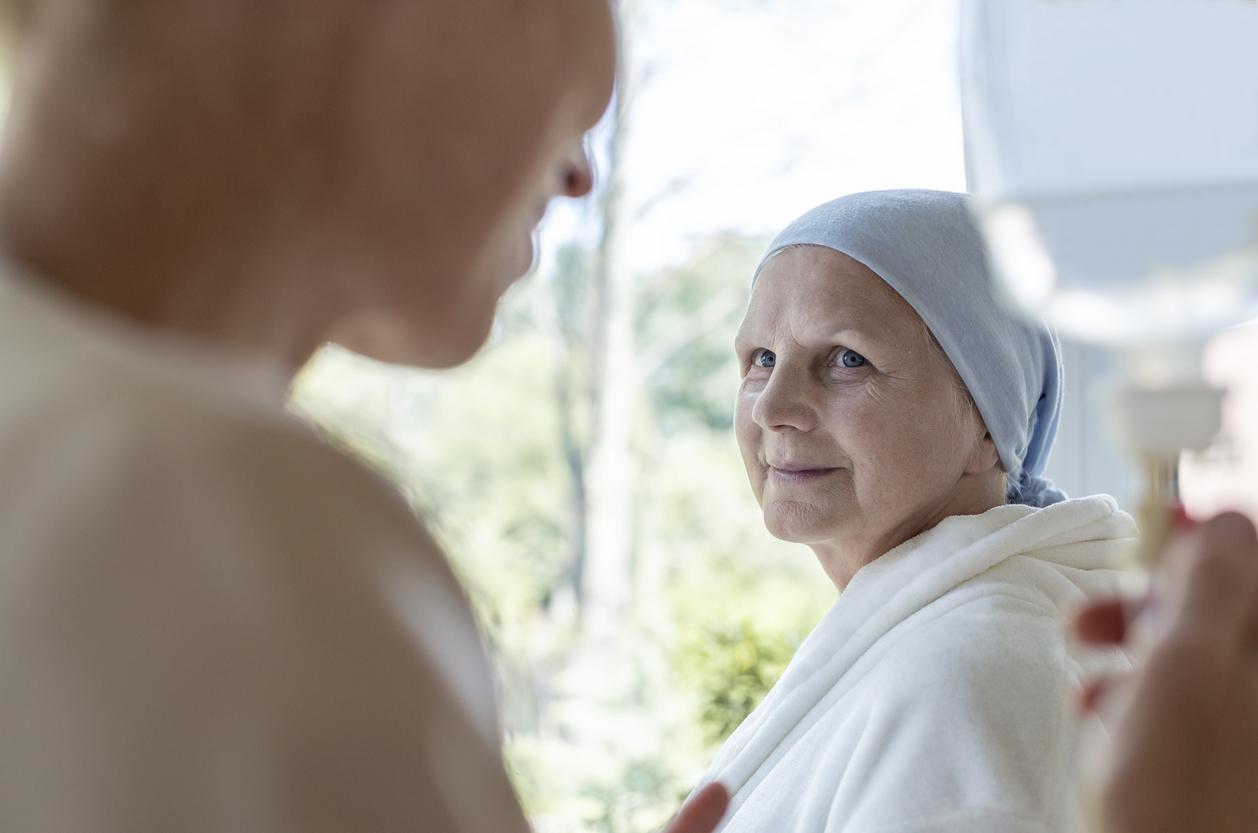A third of new cancer cases are diagnosed in people over 70 years old. To better manage these fragile patients, the number of pilot oncogeriatrics units should double within two years.
|
TO the Georges Pompidou European Hospital (HEGP), a patient over 90 years old with cancer is not systematically sentenced to palliative care. “In these very old patients, we perform chemotherapy, curative interventions for their cancer,” said Prof. Olivier Saint-Jean, head of the geriatrics department at this Parisian hospital. It would be totally unthinkable in other countries. However, the HEGP professionals are not keen on chemotherapy. Simply, “France is at the forefront of oncogeriatrics,” says Professor Saint-Jean. This is why the ARC, the Association for Research on Cancer, has just published a brochure entitled “Understanding oncogeriatrics”. Aim of the operation: to make this new practice, born out of the encounter between geriatrics and oncology, known to the general public. Until what age can we do chemotherapy? What are the promising avenues of research for seniors with cancer? All these questions, addressed in the ARC brochure, deserve to be asked when we know that a third of new cancer cases diagnosed each year occur in those over 70 years of age. To be up to the challenge, the medical community began to organize itself in the early 2000s. Without really creating a new discipline, oncologists and geriatricians have gradually developed tailor-made care for people. elderly with cancer. A work of goldsmith which should make it possible to avoid two types of errors: “Either we treat like a young adult and there, we have major complications related to the fact that the treatment is not adapted to the physiological condition of the patient. age. Either we say to ourselves, at 80, I’m not going to bother him. Which is a mistake insofar as it is quite possible to have recourse to curative therapies. By developing a geriatric care plan in support of the cancer care plan, these professionals find that they improve their patients’ prognosis.
Also treat the over 90s What is the role of the pilot coordination units in geriatrics? Have these pilot units already proven their effectiveness? A geriatric assessmentTo go further and promote collaboration between these two specialties which did not know each other, these pioneers created, in 2005, the Group for the exchange of practices in oncogeriatrics (GEPO-G / France). The same year, the National Cancer Institute (Inca) also embarked on the adventure by developing an “oncogeriatrics mission”. Objectives: “to improve the level of knowledge, to have a sufficient number of trained professionals, to obtain that all patients over 75 years of age with cancer benefit from a geriatric evaluation and to provide information on risk factors”. Cecile Coumau |
.

















